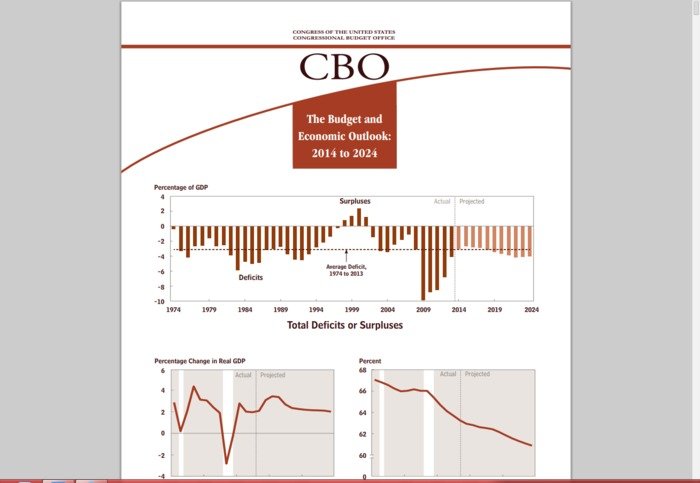Healthcare reform is either an economic engine that will lead to an increase in the number of jobs and reduction in the U.S. budget deficit, or it's a disincentive for people to work and companies to hire employees and will drag down the economy.
Which side one picks is likely to be determined by party affiliation if last week's House Budget Committee hearing on the non-partisan Congressional Budget Office's economic outlook assessment is any guide.
The CBO issued a report -- "The Budget and Economic Outlook: 2014 to 2024" -- indicating people may choose to work fewer hours in coming years either because they can now find healthcare coverage without having to be tied to a full-time job as a result of the Affordable Care Act -- aka Obamacare -- or because subsidies to help pay premiums and Medicaid eligibility depend on them not earning more than a certain dollar amount.
During the hearing, panel Chairman Paul Ryan, R-Wis., charged the effect adds insult to injury and serves to make the poor more dependent on government while ranking Democrat Chris Van Hollen, D-Md., noted the ACA decouples healthcare coverage from work, something Republicans and the conservative Heritage Foundation once touted, freeing people to pursue other interests.
That decoupling allows older Americans to cut back on full-time work, opening jobs for younger workers, leading to a reduction in unemployment and an increase in entrepreneurship for those who would have earlier been too fearful of losing coverage to take the plunge, CBO Director Douglas W. Elmendorf testified.
The CBO report estimated the ACA will reduce the total number of hours worked about 1.5 percent to 2 percent "almost entirely because workers will choose to supply less labor -- given the new taxes and other incentives they will face and the financial benefits some will receive."
"The reduction in CBO's projections of hours worked represents a decline in the number of full-time-equivalent workers of about 2 million in 2017, rising to about 2.5 million in 2024," the report said.
Elmendorf told the House Budget Committee when it comes to lower-wage workers incentives for subsidizing the cost of insurance play a major role.
"Those subsidies are then withdrawn over time -- withdrawn for people as their income rises. And by providing heavily subsidized health insurance to people with very low income and then withdrawing those subsidies as income rises, the act creates a disincentive for people to work relative to what would have been the case in the absence of that act," Elmendorf said.
"Washington is making the poverty trap much worse," Ryan said.
Van Hollen took issue with Ryan's assessment, noting the ability to decouple healthcare coverage from employment was something Republicans once pushed. It was one of the ideas championed during the 2008 presidential campaign by GOP nominee John McCain, R-Ariz.
"That is not a bad thing. It's a good thing," Van Hollen said.
Elmendorf agreed with Van Hollen's assessment that older workers choosing to cut back on their hours or leaving the workforce would open up positions for those seeking jobs, thus reducing unemployment.
"This isn't employers cutting jobs, this is workers being empowered," Rep. Bill Pascrell, D-N.J., said.
"Opponents of the ACA will try to paint these CBO estimates as evidence that the ACA has 'killed jobs' or something like it. That's flat wrong," Elise Gould said in a blog posting for the Economic Policy Institute. "What the ACA has done is expand the menu of options available to Americans about how to obtain decent health insurance without having their income fall to poverty levels. That menu used to include one option -- 'go to work for a large employer.' The fact that it's broader now is an unambiguously good thing."
White House spokesman Jay Carney told reporters statistics indicate that, in the past, once people became eligible for Medicare, there was a "mini-explosion in entrepreneurship."
"Why? Probably not because they had great ideas at 65 that they didn't have a 63, but because they have that security. That's good for the economy," Carney said.















